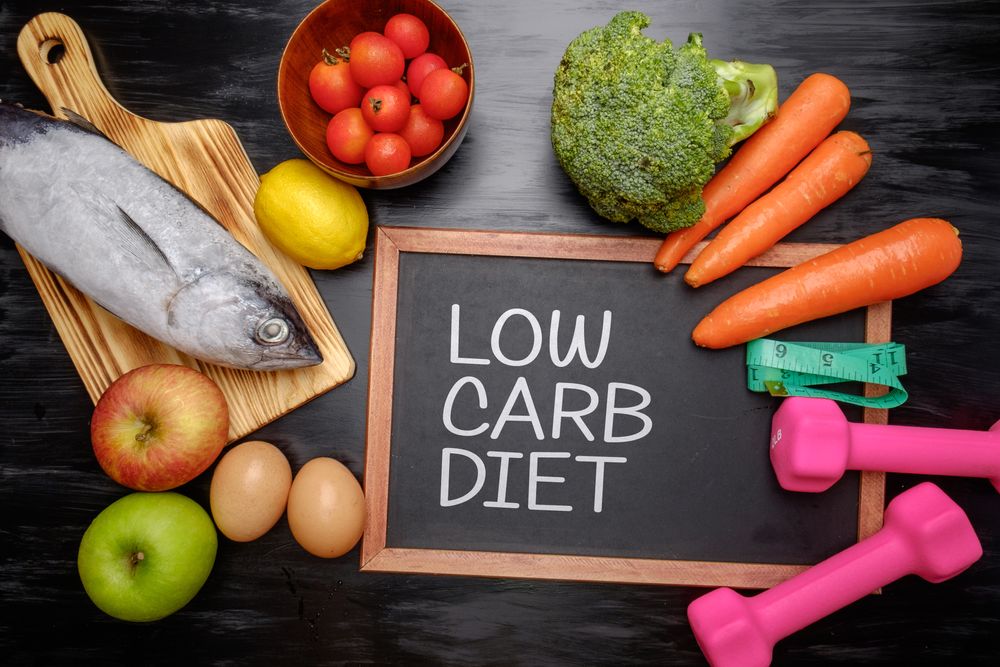Low-carbohydrate Diets For Seniors
Several reputable universities report that around 40% of Americans aged 51 and above are overweight, which can raise their chances of developing various health issues such as cardiovascular disease, type 2 diabetes, and certain types of cancer.
Scientific research suggests that low-carbohydrate diets, including the Mediterranean and Keto diets, may promote lasting weight loss and improve heart health in older adults. High-carbohydrate diets have been linked to an increased risk of diseases such as cardiovascular dysfunction. Seniors who followed an extremely low-carbohydrate diet for eight weeks experienced significant improvements in body composition, fat distribution, and metabolic health compared to those on a typical high-carb diet. Adding vegetables and fish to the diet can also improve bowel movements and decrease intestinal cramps, while increasing insulin sensitivity and reducing the risk of Type 2 diabetes. Despite budget constraints, seniors may save money in the long run by choosing plant-based meals and fish over meat, bread, and fried potatoes. Explore these two essential low-carbohydrate diets to improve senior health and longevity.

The MIND Diet is the Ideal Low Carbohydrate Program That Improves Brain Health
The MIND diet is a blend of the DASH and Mediterranean diets, two popular eating plans, with a particular focus on items that enhance brain health. Studies suggest that consuming nutritious foods such as leafy greens, almonds, and berries may reduce the risk of developing degenerative brain diseases.
Nutritional epidemiologist Martha Clare Morris, who conducted research supported by the National Institute on Aging, developed the MIND diet. It was initially released in 2015 and stands for Mediterranean-DASH Intervention for Neurodegenerative Delay. According to the study, individuals who followed the MIND diet reasonably well had a 35% reduction in their risk of Alzheimer’s, while those who strictly followed it saw a risk reduction of up to 53%.
The MIND diet program consists of the following guidelines:
- Consume seven one-cup servings of leafy green vegetables each week.
- Eat five half-cup servings of berries each week.
- Incorporate whole grains and other vegetables into your daily meals.
- Optionally, enjoy a glass of wine daily.
- Snack on nuts frequently and have a half-cup serving of beans every other day.
- Include poultry and a half-cup serving of berries (blueberries are preferred) at least twice a week.
- Eat fish at least once a week.
- Use extra-virgin olive oil as your primary cooking oil instead of butter, margarine, or vegetable oil, with two single-tablespoon daily servings.
- Consume less than four servings of red meat and meat products like sausage each week.
- Limit sweets or pastries to fewer than five servings per week.
- Consume two single-ounce servings or less of full-fat cheese.
The Paleo Is an Extremely Healthy Low Carb Diet Consisting of Meat, Fish, Poultry, Fruits and Veggies
The Paleolithic diet is founded on the principle that if our ancestors didn’t consume it, we shouldn’t either. This means that if you adhere to the Paleo diet, you will avoid consuming refined sugar, dairy, legumes, or grains. In fact, foods that were produced after the agricultural revolution are not allowed. Seniors can instead consume food items that their ancient ancestors would eat, such as meat, fish, fowl, fruits, and vegetables.
The aim is to avoid or manage modern diseases such as Type 2 diabetes and heart disease, as well as potentially losing weight, by avoiding or limiting new age foods like highly processed carbohydrates and dairy. Your consumption will be determined by your goals or the specific program you are following.
The Paleolithic diet, or caveman diet, is based on consuming unprocessed foods that our ancient ancestors would have eaten. The primary principles of the diet include eating a plant-based diet with lean proteins, avoiding refined sugars, dairy, legumes, and grains, and consuming only foods that were available before the agricultural revolution. Here are some tips to help you follow the caveman diet:
• Opt for unprocessed foods and plenty of plant-based options. • Switch up your breakfast routine with a veggie omelette instead of cereal. • Choose lean proteins like chicken, fish, and white meat. • Use a spiralizer to make vegetable noodles and pair them with turkey meatballs or fish filets. • Forgo the bun when eating burgers. • Create lettuce wraps for lunch instead of using tortillas. • Avoid processed snacks and refined carbohydrates. • Skip foods with added sugars such as cakes, cookies, pies, and candies. • Snack on nuts, dried fruit, and berries.
